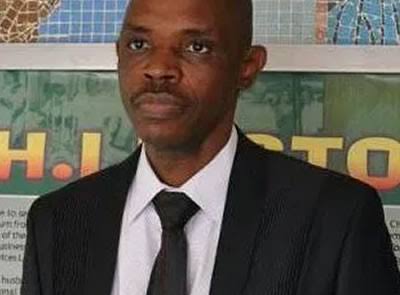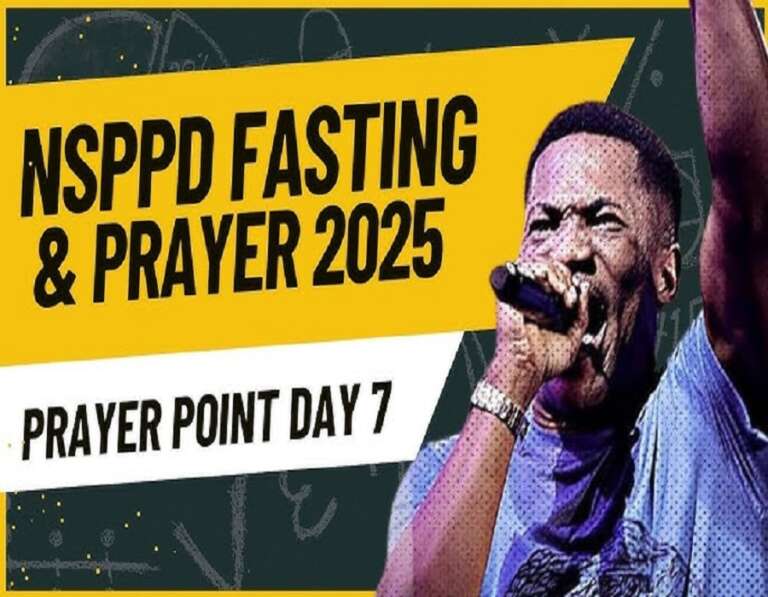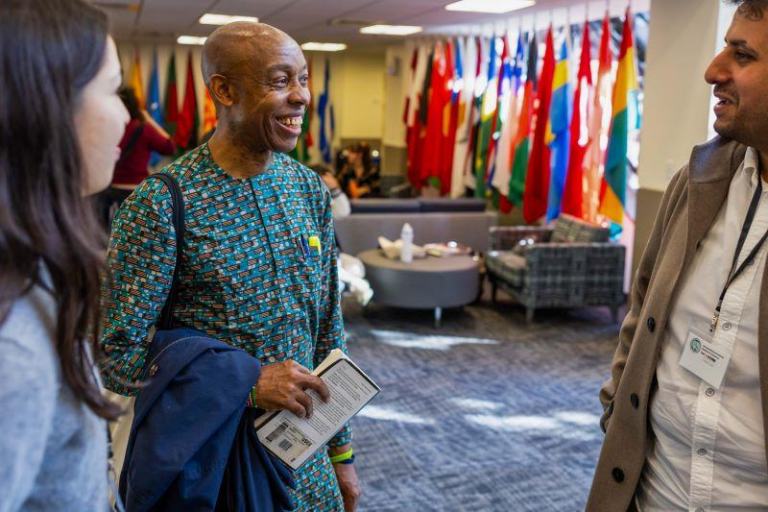By Godfrey George
Writing for The PUNCH Newspaper, GODFREY GEORGE explores the rising phenomenon of multiple sex rounds among men and women, highlighting how social pressure, misguided beliefs around masculinity, and the performance-driven culture of modern relationships contribute to this trend.
At 34, Chika Okonkwo has seen his fair share of life’s struggles. From losing both parents in one month when he was 11, to battling homelessness during COVID-19, his life has been a rollercoaster of ups and downs.
A native of Enugu State, he moved to Lagos in search of better opportunities and found his niche as a phone repairer in the busy Computer Village.
Known for his quick wit and steady hands, Chika became renowned for fixing even the most hopeless devices.
But, in his own words, no amount of skill could have prepared him for a near-death experience in the throes of passion that left him reeling for weeks.
The fateful night began innocently. Chika had met a vibrant young woman at a friend’s birthday party a few days earlier. Their connection was instant, and when she invited him over to her apartment for a late-night rendezvous, he thought nothing of it.
“She was beautiful and confident,” Chika recalls. “I didn’t want to seem like I wasn’t up for the challenge.”
What started as a seemingly ordinary night soon spiralled into a test of endurance. After their initial encounter, Chika was ready to call it a night. But his partner, fueled by boundless energy, was far from done.
“She kept saying, ‘One more round’,” Chika recounts with a weak smile. “I was flattered at first. I mean, which man wouldn’t be? But by the third round, I knew I was reaching my limit.”
Ignoring his body’s warning signs, Chika gave in to her demands for a fourth round. That was when things took a turn for the worse. “I started feeling dizzy and short of breath,” he says. “I thought it was just exhaustion, but then my heart started racing. I felt like my chest was going to explode.”
As panic set in, Chika tried to signal that he needed to stop, but his partner misinterpreted his distress as a playful act. When he began to pant heavily and clutch his chest, she finally realised something was wrong.
“I could see the fear in her eyes,” Chika says. “She asked if I was okay, but I couldn’t even speak. I thought I had died.”
Alone, afraid
In the chaos of the moment, Chika’s partner made a split-second decision that still baffles him. Gripped by fear, she grabbed her belongings and fled, leaving him gasping for air on her bedroom floor.
“I couldn’t believe she just left me there,” Chika says, shaking his head. “I was completely helpless. All I could think was, ‘This is how it ends.’”
After what felt like an eternity, Chika managed to drag himself to his feet and splash water on his face. His breathing gradually returned to normal, but the experience left him shaken to his core.
“I sat there for hours, just trying to make sense of what had happened,” he recalls. “I dreaded sex for weeks after that. I didn’t even want to think about it.”
Back at Computer Village, Chika’s near-death experience became the subject of hushed conversations among his colleagues. Though he initially tried to keep the ordeal private, the story eventually spilt out during a lighthearted discussion about relationships.
“They laughed at first,” Chika admits, “but when they saw how serious I was, the mood changed. One of my friends said, ‘You’re lucky to be alive.’ And he was right.”
Reflecting on the incident, Chika said he learnt to approach relationships—and his health—with a newfound sense of caution. “I used to think I was invincible,” he says wryly. “But now I know that even something as simple as overexerting yourself can have serious consequences. It’s not worth risking your life just to impress someone.”
Abiodun Akintomowo, a civil servant, was not as lucky. He died after a sexual encounter with a sex partner in Ondo State in January 2024.
That Sunday, the sound of church drums had faded and the evening breeze began to blow. The father of two, sought solace with a woman, identified simply as Bimpe. That evening, he checked into a modest hotel in the Akinjagunla area of the town for an intimate encounter.
However, as the evening progressed, an unforeseen darkness loomed.
After their encounter, Abiodun fainted, his vitality quickly waning. As he collapsed, Bimpe began to panic. Her frantic cries pierced the hotel’s silence, summoning the manager and concerned patrons. Despite their desperate attempts to revive him, Abiodun’s journey tragically came to an end.
The news of his untimely demise spread through Ondo like wildfire, igniting conversations laced with speculation and sorrow.
Whispers of ‘Magun,’ a traditional Yoruba charm believed to punish infidelity by causing sudden death during intercourse, surfaced.
Some locals, steeped in cultural lore, wondered if Abiodun had fallen victim to this ancient spell, especially given Bimpe’s status as a married woman.
The Ondo State Police Command, led by the Public Relations Officer, Mrs Funmilayo Odunlami, swiftly intervened.
Two individuals were detained: Bimpe, whose real identity remained shrouded in mystery, and the hotel proprietor.
Odunlami stated, “The man was not feeling alright after the sexual intercourse with the lady in the hotel, so he was rushed to the hospital and later died. The two suspects are still in our custody.”
As the investigation unfolded, the community grappled with a complex tapestry of emotions. Abiodun’s family was plunged into profound grief, mourning the loss of a husband and father whose life was abruptly cut short.
Experts who weighed in on the matter suggested that the man’s collapse may have been triggered by his body’s inability to handle the excessive physical exertion. His blood pressure, they noted, had likely shot up beyond normal levels, leading to a state of shock, which may have ultimately contributed to his tragic death.
40-year-old father of 12
The sleepy Tombia-Amassoma Road in Yenagoa, Bayelsa State, was, in May 2024, awakened to an eerie hush as residents discovered the lifeless body of a man in a brothel—an end both tragic and thought-provoking.
He was said to be 40 years old, a father of 12 children, and a man grappling with the challenges of a partial stroke. A Delta State indigene, his name, much like his final hours, remained cloaked in mystery as his story unfolded like an unscripted tragedy.
On a seemingly ordinary Tuesday morning, the man reportedly left his home unassumingly around 8 a.m. His destination? The now-infamous brothel nestled along the axis of Tombia-Amassoma Road.
What transpired within those dimly lit walls has left a community grappling for answers and a family with more questions than closure.
When his lifeless body was discovered, it was a haunting tableau: the man, naked, motionless, and alone in the quarters of the brothel. Not a single commercial sex worker was in sight; they had abandoned the scene, leaving behind only the echoes of his final moments.
Residents crowded the brothel, their whispers mingling with the morning air as they tried to piece together his identity. Neighbours and passersby speculated about his life, his choices, and the circumstances that led to his untimely end. To many, he was just “the man from Delta,” another customer of the brothel who had ventured too far into the shadows.
Some spoke of his struggle with partial stroke, wondering aloud if it was wise for him to engage in what would become a fatal tryst. Yet, it was the silence of the brothel and its usual inhabitants that spoke the loudest.
The brothel in question had long been marked as a “red-light zone,” a space where moral boundaries were blurred, and life often teetered on the edge of secrecy and danger.
Security operatives had raided it before, their efforts to bring order to its chaotic underworld yielding only fleeting success.
Commander of the Vigilante Group of Nigeria in Bayelsa State, Mr Tolumobofa Akpoebibo Jonathan, confirmed the man’s age and familial status.
“He is a 40-year-old father of 12 from Delta State,” Jonathan remarked, his words punctuated by the weight of the loss.
The Command Police spokesperson, ASP Musa Muhammed, also echoed the uncertainty surrounding the incident.
He admitted that investigations were ongoing and promised to uncover the chain of events that led to the man’s death. But for now, speculation reigns supreme.
Death in the shadows of intimacy
Again, in Ondo, tragedy struck one Wednesday evening in October 2022, shattering the calm of a popular hotel and sending shockwaves through the local community.
Lanre, a 45-year-old man, met his untimely demise under circumstances shrouded in whispers after he visited the hotel with a sex worker.
The man, who had reportedly checked into the hotel earlier that evening with his companion, excused himself after sexual intercourse to freshen up in the bathroom. Moments later, a loud thud startled the woman.
Alarmed, she rushed to the door, her frantic cries drawing the attention of the hotel staff.
The scene they encountered was grim: Lanre lay motionless on the tiled floor, unresponsive and lifeless.
Attempts to revive him proved futile. By the time police detectives arrived, the reality of his death was undeniable.
His body was later transported to the morgue at the University of Medical Sciences in Ondo for autopsy and further investigation.
The initial conclusion pointed to “Sudden and Unnatural Death”, but whispers in the community hinted at something far more sinister.
Some suggested exhaustion from an overindulgent romp, while others leaned into cultural folklore, claiming Lanre was a victim of magun.
The incident left Lanre’s family reeling in pain, their mourning laced with unanswered questions. What truly happened in that bathroom? What unseen forces, if any, played a role in his demise?
A shadow cast in Enugu
Three years earlier, in September 2019, a strikingly similar tale had unfolded in a hotel along the bustling Enugu-Onitsha Expressway.
This time, it was a businessman in his late 50s, whose name was shielded from public scrutiny, and who fell victim to the intoxicating mix of lust, age, and, perhaps, reckless choices.
The man, whose story carried echoes of Lanre’s tragic end, had arranged a rendezvous with a widow from Anambra State. Unlike Lanre’s quiet companion, however, this widow would later deny any intimate involvement, her testimony steeped in protestations of innocence.
According to her account, the businessman had consumed two bottles of stout and a suspicious substance believed to be a performance-enhancing drug, seemingly in preparation for a night of passion.
But as the moments ticked by, his demeanour shifted. His breathing became laboured, and his behaviour erratic. Then, without warning, he collapsed.
Her cries for help drew the hotel staff, who immediately contacted the authorities. By the time the police arrived and the body was taken to a nearby hospital, the man’s fate had been sealed.
“I hadn’t even touched him,” she reportedly told investigators, her voice trembling with shock and disbelief. “He just started breathing fast and acting strangely.”
News of the incident reverberated through Enugu, raising eyebrows and setting tongues wagging. But unlike Lanre’s case, this tragedy was met with an almost stoic pragmatism by the man’s family. When his widow arrived from their home state, she was informed of the circumstances surrounding his death. Rather than pursue legal action or delve deeper into the murky details, she chose discretion over drama, a decision echoed by her husband’s relatives.
“It was a shameful death,” a family insider reportedly said. “They just wanted to bury him quietly and move on.”
The widow worked swiftly to secure the necessary documents to retrieve the body, closing a chapter that many in her position might have preferred to leave unopened.
Death in the name of desire
Sexual prowess has long been a source of pride and an unwritten standard of masculinity in many cultures, including Nigeria’s. For many men, their ability to satisfy their partners in bed, often through prolonged or multiple rounds of sexual activity, is seen not just as a personal accomplishment but as a societal expectation. However, this obsession with bedroom performance is increasingly proving deadly.
Stories of men collapsing and dying during or shortly after sex have dominated news headlines in recent years, sparking concern over a dangerous and largely unspoken trend. Behind closed doors, where passion turns into a race for dominance and stamina, the pressures of societal constructs of masculinity and self-worth converge in lethal ways. Men, driven by the desire to prove their virility, sometimes resort to dangerous substances, endure extreme physical exertion, or neglect critical health signals, leading to fatal outcomes.
While these tragedies often evoke shock and momentary discourse, they shed light on a critical public health concern that demands deeper examination.
Deadly obsession with masculinity
The patriarchal fabric of many Nigerian societies ties a man’s value to his ability to dominate—in business, social interactions, and even the bedroom, experts have noted.
A sociologist and researcher based in Owerri, Imo State, Dr Chikeluba Odinaka, said this urge to always dominate creates an unrelenting pressure to meet and exceed expectations.
He said, “For many men, sex becomes more than an intimate act; it is a performance where endurance, strength, and ‘rounds’ become metrics for self-worth.”
“When you ask men why they push themselves to such extremes in the bedroom, they often say, ‘I don’t want her to tell her friends I’m weak.’ It’s no longer about intimacy but about proving a point.”
Odinaka added that the societal pressure is amplified in relationships where the man feels inadequate or fears that a lack of sexual satisfaction might push his partner away.
“In some cases, men also overcompensate after perceived failures in other aspects of their lives—such as unemployment or financial struggles—by excelling in the one area they feel they can control: the bedroom,” he added.
Role of performance-enhancing drugs
To meet these lofty expectations, many men turn to performance-enhancing substances, ranging from herbal concoctions and over-the-counter drugs to prescription medications.
These substances, often taken without medical guidance, can cause dangerous spikes in blood pressure, irregular heartbeats, or even cardiac arrest—particularly in men with underlying health issues.
A study by the Nigerian Medical Association in 2022, revealed that 60 per cent of men aged 25–45 in urban areas have used some form of performance enhancement for sexual activity.
Alarmingly, 30 per cent of these men admitted to mixing drugs or taking more than the recommended doses, believing that “more” equals “better.”
Health experts have consistently warned against the misuse of such drugs. “These medications are designed for specific medical conditions, not for recreational use,” said a cardiologist, Dr Funmi Oyetunde.
“When men use them recklessly, they gamble with their lives.”
Physiology of overexertion
Sexual activity, while often regarded as a pleasurable act, places significant physical demands on the body.
During sex, the heart rate increases, blood pressure rises, and muscles are actively engaged. For a healthy individual, these changes are manageable.
However, for men with undiagnosed health conditions like hypertension, diabetes, or heart disease—ailments common in Nigeria—prolonged or intense sexual activity can lead to fatal outcomes such as heart attacks or strokes.
“When a man goes for multiple rounds, he’s essentially forcing his body to recover and re-engage in high-intensity activity without sufficient rest,” explained physiologist Dr Chika Nnaji.
“It’s like running a marathon, pausing briefly, and then sprinting again without recovery. The body can only take so much.”
Also speaking on the medical dynamics of sex, a medical practitioner and Co-Founder of Prive, a men’s healthcare brand, Dr Olusina Ajidahun, stated that there are four distinct phases of sexual activity: excitement, plateau, orgasm, and resolution.
He explained, “The first phase, excitement, begins with arousal. For men, this is when an erection occurs. For women, the labia majora swells, and beneath it, the labia minora becomes more prominent. The body begins to prepare for sexual activity.
“The next phase is the plateau. During this stage, the body is fully prepared for sex. Blood flow increases, and physical sensations intensify.
“Orgasm follows as the third phase. This is the crescendo or peak of sexual activity. For men, reaching orgasm is typically faster than for women, often taking about 20 minutes in one or two rounds of intercourse. This discrepancy leaves many women unsatisfied because their climax may require more time or stimulation.
“Finally, the resolution phase marks the return of the body to its baseline state. For men, this includes the penis returning to its normal size, while for women, certain physiological changes occur within the vagina.”
‘Women require more time to reach orgasm than men’
He also noted that it was important to recognise that the sexual experience isn’t just about men; it involves satisfying both partners.
“While a man may engage in 20 to 30 minutes of sexual activity, many women do not climax within that time frame. In fact, research suggests that 70 to 80 per cent of women have never experienced a climax in their entire lives. Some women require one or two hours of stimulation to achieve orgasm. This lack of satisfaction can strain relationships and, in some cases, lead women to seek satisfaction outside of their marriage,” he said.
Ajidahun further added that techniques such as oral sex, anal sex, stimulation, and prolonged foreplay can enhance satisfaction. He said by targeting erogenous zones, women may not feel the need to demand additional rounds of intercourse.
“The key is communication and understanding between partners,” he noted.
‘Peer pressure killing young men’
Among younger people, the medical practitioner noted that societal pressures and peer conversations about sexual performance can exacerbate the issue. It becomes less about genuine satisfaction and more about living up to perceived expectations.
“There are also cases where men, due to medical conditions like premature ejaculation or erectile dysfunction, seek to compensate by engaging in multiple rounds of sex. These individuals may not achieve adequate satisfaction and sometimes turn to enhancers such as aphrodisiacs. When such drugs are used, men may feel compelled to continue until the effects of the medication wear off.”
Stigma of weakness
One of the reasons this trend persists is the stigma surrounding male vulnerability. For many men, admitting to fatigue, declining sexual stamina or even health problems feels like an admission of failure. This cultural aversion to appearing weak prevents men from seeking help or discussing concerns with their partners.
“In our society, men are not encouraged to express vulnerability,” noted senior psychologist Usen Essien. “When a man can’t perform sexually, it’s often seen as a deficiency of character rather than a medical issue. This mindset pushes men to dangerous lengths to avoid ridicule.”
Older men should avoid multiple sex rounds – Physician
A medical practitioner, Dr Jennifer Emokai, said the acceptable benchmark depends on the age, stamina, and health of the man involved.
She said, “Younger men can go multiple rounds while older men can go fewer rounds. Men with health issues such as heart conditions, diabetes, and nervous system conditions, etc., will have their health and sexual function affected, hence they are not advised to engage in multiple sex rounds.”
The physician also noted that men should be aware of when they have reached their threshold for sex, listen to their bodies, and not engage when they feel exhausted.
“A lot of discipline and self-control is important for people who care about their health and well-being. An exception may be those men who are under the influence of drugs to enhance their sexual performance and those with mental illness such as mania; those ones may not have that control or discipline to avoid overexerting themselves,” she added.
Insatiable urge
A cleric and social commentator, Pastor Itekena Chepaka, said there was a pervasive cultural narrative that equates a man’s sexual prowess with his masculinity, often measured by the number of consecutive sexual rounds he can perform.
“This societal expectation exerts immense pressure on men to engage in multiple sexual encounters, sometimes to the detriment of their health and well-being. Men often face direct or indirect pressure from their social circles to conform to expectations of sexual endurance and frequency. Failure to meet these standards can result in ridicule or questioning of one’s masculinity. This is unnecessary. One round of sex is more than enough, and men should know that.”
70% of men aged 18 to 34 desire three sex rounds – PUNCH Investigation
On November 9, this reporter sent out a daring questionnaire to a group of men to know how many sex rounds they considered satisfactory.
The response was mind-blowing: 70 replies came indicating the sexual prowess of men aged 18 to 35 and those 45 to 70.
The response was a stunning revelation of sexual stamina preferences across two very distinct age groups.
The data, painstakingly analysed with the help of an expert data analyst, Ihechilurum Ikechukwu-Ogodo, exposed eye-opening trends that paint a fascinating picture of men’s sexual endurance and their expectations in the bedroom.
For the younger group—men aged 18 to 35—an overwhelming 70 per cent declared that three rounds or fewer were their limit during sexual activity.
This sets a clear stamina threshold, which many younger men seem to adhere to. Shockingly, 15 per cent of these men revealed that just one round was enough for them, while another 15 per cent felt two rounds were sufficient.
But here’s the kicker: only a tiny fraction, a mere 7.5 per cent, claimed they could go beyond three rounds.
What’s even more eye-catching is that many of these men confessed to using sexual enhancers to push beyond their limits.
Then, the plot thickens. Among the older group— 45 to 60—the data flips the script entirely. A striking 79 per cent of these men reported that just two rounds, or less, was all they needed to feel satisfied.
It’s a sharp contrast to the younger generation, and it’s clear: age is taking its toll on stamina. Yet, 10.5 per cent of these older men admitted that they could still push beyond two rounds, but not without the help of sexual enhancers.
Another 10.5 per cent were uncertain, hinting at the influence of health issues, lifestyle, or other personal factors that may contribute to their lack of clarity.
Ikechukwu-Ogodo, while analyzing the data, noted that there’s a stark decline in stamina as men age.
He pointed out that older men’s preference for fewer rounds correlates with the biological realities of ageing.
But the most intriguing was the reliance on sexual enhancers among both the younger and older groups, revealing an unsettling dependence on external aids to maintain sexual performance.
“The younger group’s admission of using enhancers, even when they exceed three rounds, strongly suggests that societal pressures to perform—along with a deep-seated perception of sexual prowess—play a crucial role in their behaviour. The data doesn’t just expose the physical decline in stamina with age; it also hints at the powerful social and psychological forces shaping men’s sexual expectations and behaviours,” Ikechukwu-Ogodo explained.
Culled from The PUNCH Newspapers











